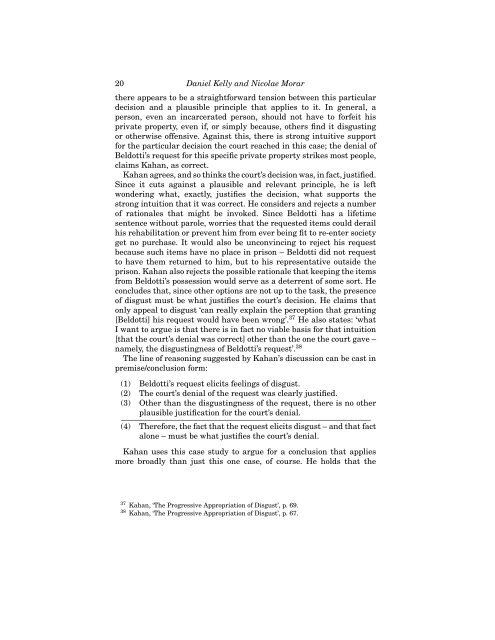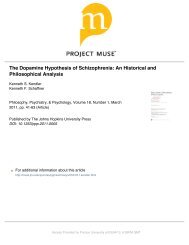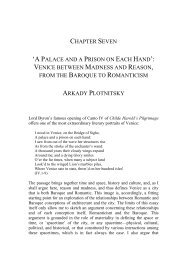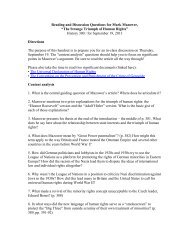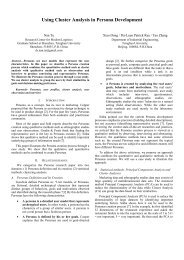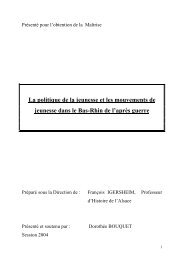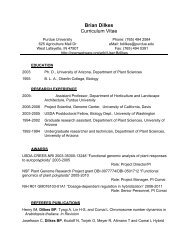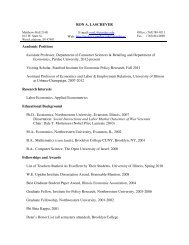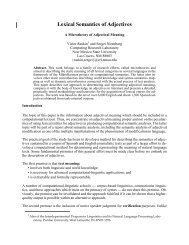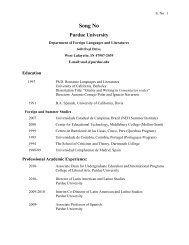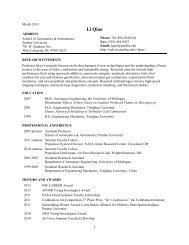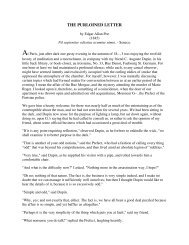Against the Yuck Factor - Career Account Web Pages - Purdue ...
Against the Yuck Factor - Career Account Web Pages - Purdue ...
Against the Yuck Factor - Career Account Web Pages - Purdue ...
Create successful ePaper yourself
Turn your PDF publications into a flip-book with our unique Google optimized e-Paper software.
20 Daniel Kelly and Nicolae Morar<br />
<strong>the</strong>re appears to be a straightforward tension between this particular<br />
decision and a plausible principle that applies to it. In general, a<br />
person, even an incarcerated person, should not have to forfeit his<br />
private property, even if, or simply because, o<strong>the</strong>rs find it disgusting<br />
or o<strong>the</strong>rwise offensive. <strong>Against</strong> this, <strong>the</strong>re is strong intuitive support<br />
for <strong>the</strong> particular decision <strong>the</strong> court reached in this case; <strong>the</strong> denial of<br />
Beldotti’s request for this specific private property strikes most people,<br />
claims Kahan, as correct.<br />
Kahan agrees, and so thinks <strong>the</strong> court’s decision was, in fact, justified.<br />
Since it cuts against a plausible and relevant principle, he is left<br />
wondering what, exactly, justifies <strong>the</strong> decision, what supports <strong>the</strong><br />
strong intuition that it was correct. He considers and rejects a number<br />
of rationales that might be invoked. Since Beldotti has a lifetime<br />
sentence without parole, worries that <strong>the</strong> requested items could derail<br />
his rehabilitation or prevent him from ever being fit to re-enter society<br />
get no purchase. It would also be unconvincing to reject his request<br />
because such items have no place in prison – Beldotti did not request<br />
to have <strong>the</strong>m returned to him, but to his representative outside <strong>the</strong><br />
prison. Kahan also rejects <strong>the</strong> possible rationale that keeping <strong>the</strong> items<br />
from Beldotti’s possession would serve as a deterrent of some sort. He<br />
concludes that, since o<strong>the</strong>r options are not up to <strong>the</strong> task, <strong>the</strong> presence<br />
of disgust must be what justifies <strong>the</strong> court’s decision. He claims that<br />
only appeal to disgust ‘can really explain <strong>the</strong> perception that granting<br />
[Beldotti] his request would have been wrong’. 37 He also states: ‘what<br />
Iwanttoargueisthat<strong>the</strong>reisinfactnoviablebasisforthatintuition<br />
[that <strong>the</strong> court’s denial was correct] o<strong>the</strong>r than <strong>the</strong> one <strong>the</strong> court gave –<br />
namely, <strong>the</strong> disgustingness of Beldotti’s request’. 38<br />
The line of reasoning suggested by Kahan’s discussion can be cast in<br />
premise/conclusion form:<br />
(1) Beldotti’s request elicits feelings of disgust.<br />
(2) The court’s denial of <strong>the</strong> request was clearly justified.<br />
(3) O<strong>the</strong>r than <strong>the</strong> disgustingness of <strong>the</strong> request, <strong>the</strong>re is no o<strong>the</strong>r<br />
plausible justification for <strong>the</strong> court’s denial.<br />
———————————————————————————————<br />
(4) Therefore, <strong>the</strong> fact that <strong>the</strong> request elicits disgust – and that fact<br />
alone – must be what justifies <strong>the</strong> court’s denial.<br />
Kahan uses this case study to argue for a conclusion that applies<br />
more broadly than just this one case, of course. He holds that <strong>the</strong><br />
37 Kahan, ‘The Progressive Appropriation of Disgust’, p. 69.<br />
38 Kahan, ‘The Progressive Appropriation of Disgust’, p. 67.


